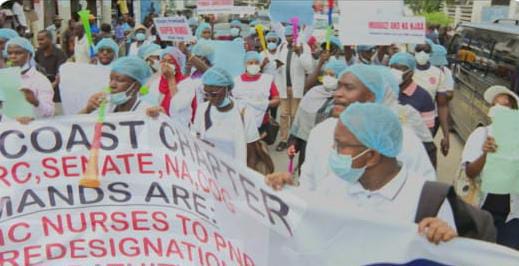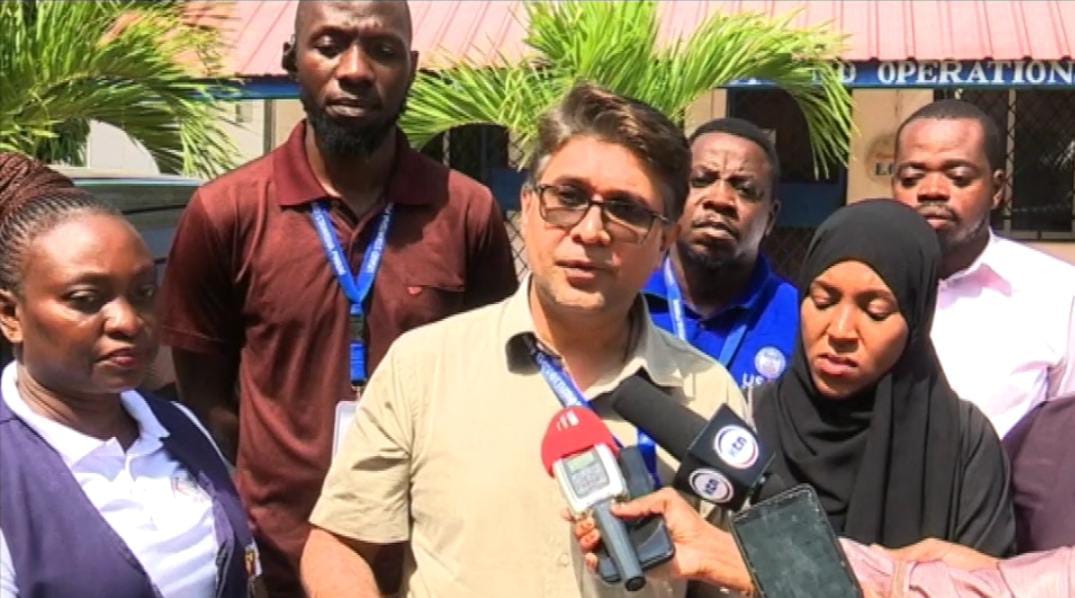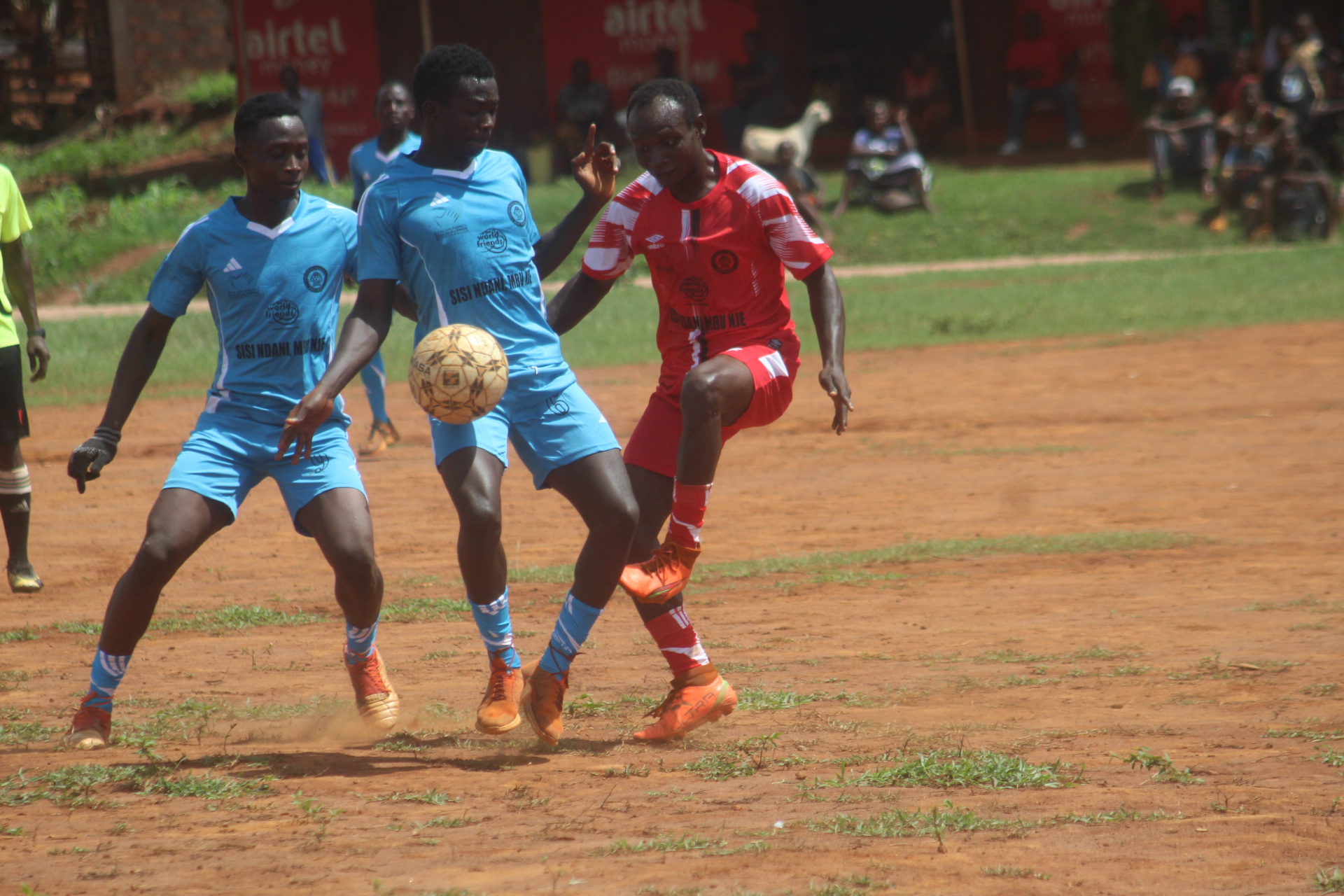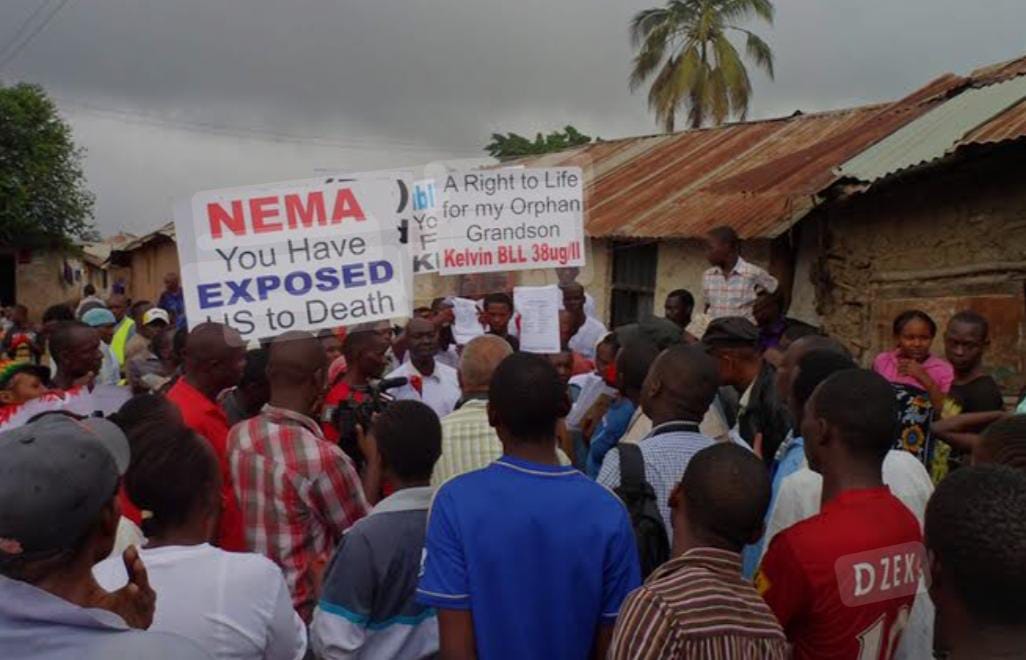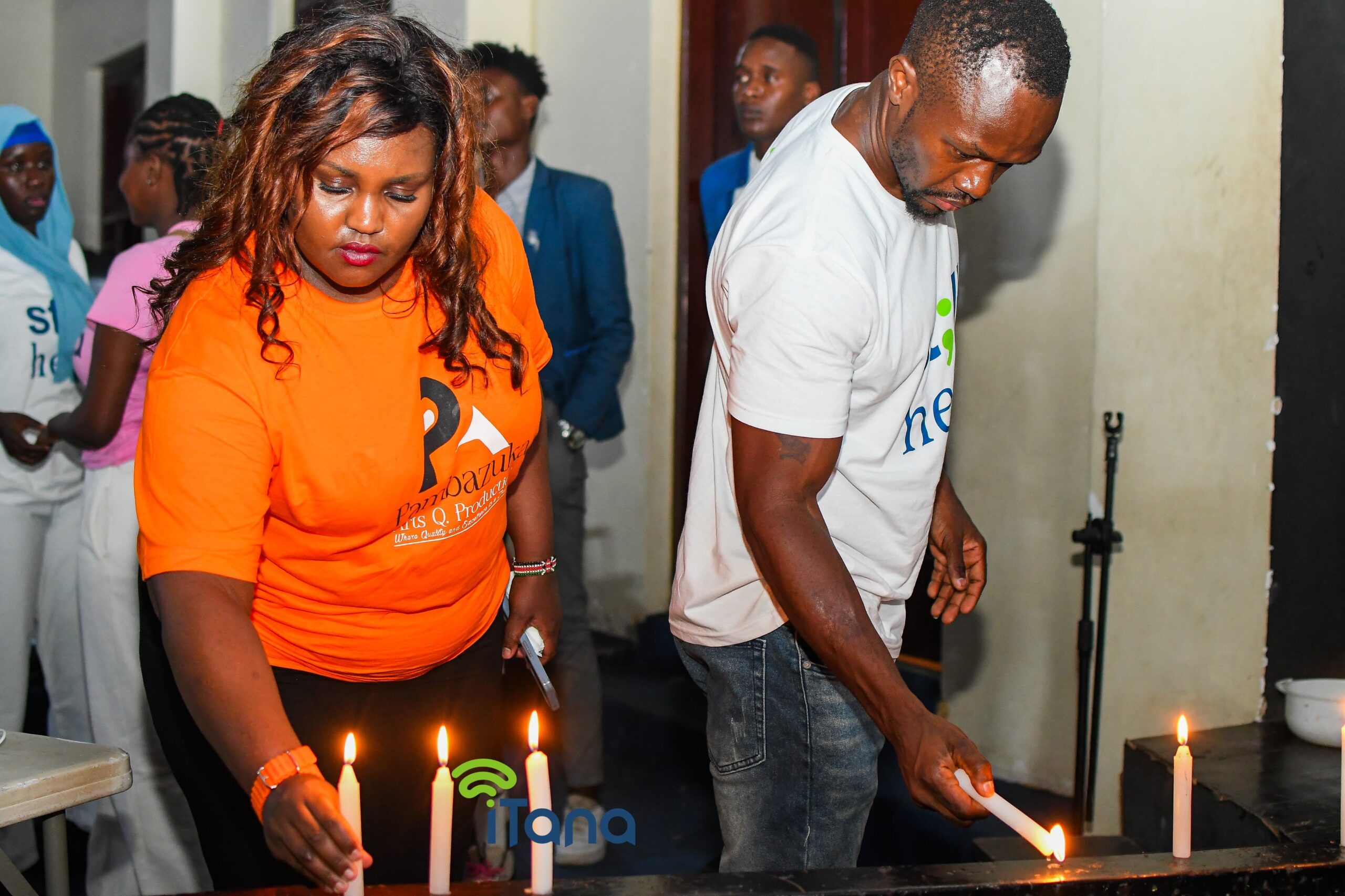Health workers holding demonstrations to demand for better pay and terms of service. Photo by Jane Meza.
The ongoing strike by Universal Health Coverage (UHC) nurses across six coastal counties has plunged public hospitals into a state of crisis, raising serious questions about the sustainability of Kenya’s flagship healthcare program.
With service delays mounting and vulnerable populations left without the much needed care, the strike has exposed the risky employment conditions of these frontline workers and the broader challenges facing the much hyped UHC initiative.
For three weeks, nurses in Mombasa, Kilifi, Kwale, Lamu, Tana River, and Taita Taveta counties have downed their tools, demanding permanent and pensionable (PnP) employment and the payment of long-overdue salaries and benefits. The impact of their absence is now being acutely felt by the communities they serve.
According to Hamisi Mboi, many patients seeking treatment services have been forced to look for alternative providers turning to private hospitals where they are required to pay cash before services and most of them can’t afford it.
“We are witnessing a healthcare crisis unfold, pregnant women are being forced to deliver at home, because they can’t afford to pay for private hospitals. Majority of us are the poor people who can’t even afford two meals a day, and now this other problem is making our lives unbearable, suffering in the hands of the government, How can the government claim to be providing universal healthcare when the very people delivering that care are treated so unfairly?,” stated Mboi.
The nurses, employed on short-term contracts under the UHC program, argue that they have been the backbone of the coastal region’s healthcare system. Yet, they lack basic job security and retirement benefits, hindering their ability to secure loans, further their education, and plan for their future.
“This is not just about our salaries,” explained Benclif Angala, KNUN Coast Chapter Secretary General. “It’s about the dignity of our profession and the well-being of our communities. We are dedicated to providing quality care, but we cannot do so under these exploitative conditions.”
The strike has also raised concerns about the long-term viability of the UHC program. Critics argue that relying on contract-based employment for essential healthcare workers undermines the program’s goals and compromises the quality of care.
“How can the government expect to achieve universal health coverage with a workforce that is demoralized and insecure?” questioned Peter Maroko, KNUN Mombasa Chapter Chairman. “This is a form of modern-day slavery. We need to invest in our healthcare workers if we want to build a resilient and equitable healthcare system.”
As the strike continues, the pressure mounts on coastal governors, the Ministry of Health, the Public Service Commission, and the Salaries and Remuneration Commission to find a swift resolution. The future of the UHC program, and the health of the coastal communities it serves, hangs in the balance.

